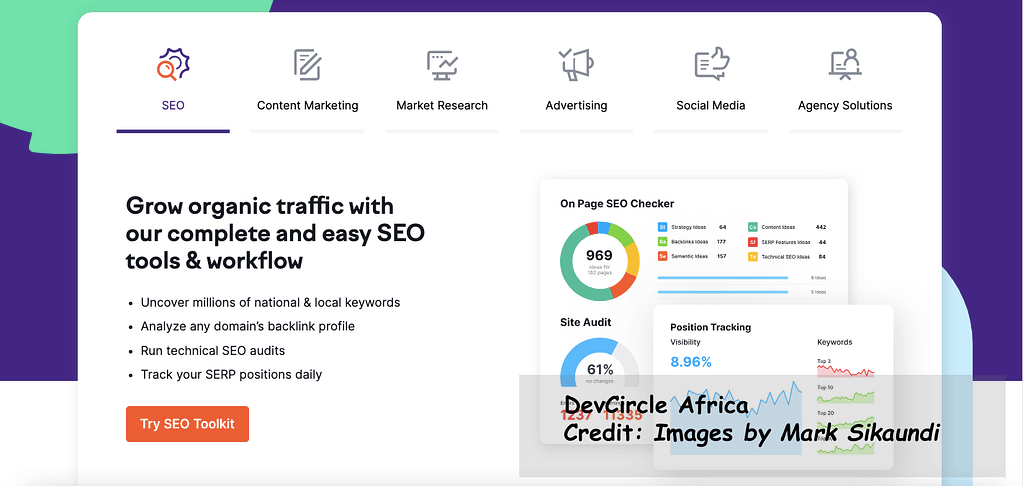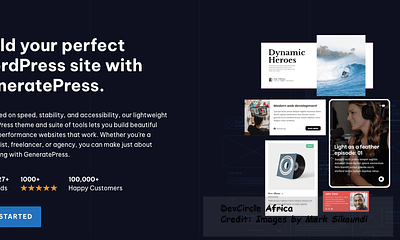SEO
What is SEO and how it works

Understanding SEO and Its Importance
Search Engine Optimization, or SEO, is a crucial factor in a successful online presence. SEO refers to the practice of optimizing your website in order to increase its visibility in search engine results. In simpler terms, SEO helps your website to rank higher on search engine results pages (SERPs), which in turn drives more organic traffic to your site.
SEO works by using a combination of techniques and strategies that help search engines understand the content on your website and determine how relevant it is to users’ search queries. This includes optimizing on-page elements such as keywords, meta tags, and headings, as well as improving off-page factors like backlinks and social signals.
Having a strong SEO strategy is essential for businesses looking to increase their online visibility and drive more traffic to their website. By implementing SEO best practices, you can improve your website’s ranking on search engines, attract more targeted traffic, and ultimately increase leads and sales for your business.
How SEO Works
SEO is a complex and ever-evolving field that requires a combination of technical expertise, creative thinking, and analytical skills. At its core, SEO works by helping search engines understand and rank your website based on its relevance and authority in relation to specific keywords and search queries.
One of the key components of SEO is keyword research, which involves identifying the most relevant and high-traffic keywords for your website’s content. By strategically incorporating these keywords into your website’s content, meta tags, and headings, you can improve your chances of ranking higher in search results for those terms.
In addition to keyword optimization, SEO also involves improving other aspects of your website such as site speed, mobile-friendliness, and user experience. These factors also play a crucial role in determining your website’s ranking on search engine results pages.
Ultimately, SEO is an ongoing process that requires consistent monitoring and optimization to stay ahead of the competition and maintain high rankings in search results. By following best practices and staying up-to-date on the latest trends and algorithms, you can ensure that your website remains visible and relevant to users searching for your products or services.
The Benefits of SEO for Your Business
Implementing a strong SEO strategy can offer a wide range of benefits for your business, including increased visibility, targeted traffic, and improved lead generation. By optimizing your website for search engines, you can attract more qualified visitors who are actively searching for your products or services.
One of the main benefits of SEO is that it can help your website rank higher in search engine results pages, which can lead to increased organic traffic and brand visibility. This can ultimately result in more leads, conversions, and sales for your business.
Additionally, SEO can provide long-term results and a higher return on investment compared to other marketing strategies. By consistently optimizing your website and monitoring its performance, you can achieve sustainable growth and attract a steady stream of traffic to your site.
Overall, SEO is an essential component of any successful digital marketing strategy. By investing in SEO and following best practices, you can improve your website’s ranking, drive more targeted traffic, and ultimately grow your business online.
SEO
Is Google Keyword Planner Accurate?

Google Keyword Planner is a popular tool used by digital marketers to determine the search volume and competition for specific keywords. However, there has been some debate about the accuracy of the data provided by this tool. In this blog post, we will address some common myths about the accuracy of Google Keyword Planner.
Myth #1: The Search Volume Numbers are Inflated One common myth about Google Keyword Planner is that the search volume numbers provided are inflated. While it is true that the search volume numbers are estimates, they are based on actual search data from Google. The numbers may vary slightly from the actual search volume, but they are generally accurate enough to give marketers a good idea of the popularity of a keyword.
Myth #2: The Competition Level is Misleading Another myth about Google Keyword Planner is that the competition level for keywords is misleading. The competition level provided by the tool is an indication of how many advertisers are bidding on a particular keyword. While this does not necessarily reflect the difficulty of ranking for that keyword in organic search results, it can still be a useful metric for assessing the competitiveness of a keyword.
Myth #3: The Data is Outdated Some users have complained that the data provided by Google Keyword Planner is outdated and not reflective of current search trends. While it is true that the search volume data may not always be up to date, Google regularly updates its keyword database to ensure that marketers have access to the most current data available.
In conclusion, while Google Keyword Planner may not be 100% accurate, it is still a valuable tool for digital marketers to use when conducting keyword research. By understanding the limitations of the tool and using it in conjunction with other keyword research tools, marketers can make informed decisions about which keywords to target in their SEO campaigns.
How to Use Google Keyword Planner Effectively
While Google Keyword Planner may not be completely accurate, it is still a valuable tool for conducting keyword research. In this blog post, we will discuss some tips for using Google Keyword Planner effectively to help you identify the best keywords for your SEO campaigns.
Tip #1: Use Broad Match Keywords When conducting keyword research with Google Keyword Planner, it is important to use broad match keywords to get a comprehensive view of search volume and competition. Broad match keywords will show you variations of the keyword you are targeting, as well as related keywords that may also be relevant to your campaign.
Tip #2: Use Negative Keywords In addition to broad match keywords, it is also important to use negative keywords in Google Keyword Planner. Negative keywords are terms that you do not want your ads to appear for, and adding them to your keyword list can help you refine your targeting and improve the accuracy of your data.
Tip #3: Refine Your Targeting with Filters Google Keyword Planner offers a range of filters that can help you refine your keyword research. By using filters such as location, language, and date range, you can get more specific data that is relevant to your target audience and campaign goals.
By following these tips and experimenting with different strategies, you can make the most of Google Keyword Planner and use it effectively to identify the best keywords for your SEO campaigns.
Alternatives to Google Keyword Planner
While Google Keyword Planner is a popular tool for conducting keyword research, it may not always provide the most accurate or up-to-date data. In this blog post, we will discuss some alternatives to Google Keyword Planner that you can use to supplement your keyword research efforts.
SEMrush
SEMrush is a comprehensive SEO tool that provides a wealth of data on keywords, competition, and search trends. While it is a paid tool, SEMrush offers more detailed and accurate data than Google Keyword Planner, making it a valuable resource for digital marketers.
Ahrefs
Ahrefs is another popular SEO tool that offers a range of features for keyword research, backlink analysis, and site auditing. With accurate search volume data and competitive analysis tools, Ahrefs is a robust alternative to Google Keyword Planner for conducting keyword research.
Moz Keyword Explorer
Moz Keyword Explorer is a user-friendly keyword research tool that provides valuable insights into search volume, competition, and keyword difficulty. With features such as keyword suggestions and SERP analysis, Moz Keyword Explorer is a reliable alternative to Google Keyword Planner for marketers looking to improve their SEO strategies.
By exploring these alternatives to Google Keyword Planner and using them in conjunction with other keyword research tools, you can enhance the accuracy and effectiveness of your keyword research efforts and improve the performance of your SEO campaigns.
SEO
Semrush vs Google Keyword Planner

Understanding the Differences Between SEMrush vs Google Keyword Planner
When it comes to keyword research tools, two of the most popular options are SEMrush and Google Keyword Planner. While both tools are designed to help with identifying relevant keywords for your search engine optimization efforts, they each have their own unique features and benefits.
Table of Contents
SEMrush is a comprehensive SEO tool that offers a wide range of features beyond just keyword research. It provides in-depth competitor analysis, backlink analysis, and site auditing capabilities. In terms of keyword research, SEMrush offers detailed keyword metrics such as search volume, keyword difficulty, and cost per click. It also allows users to track keyword rankings over time and identify new keyword opportunities.
On the other hand, Google Keyword Planner is a free tool provided by Google within its Google Ads platform. While it may not offer the same level of comprehensive features as SEMrush, Google Keyword Planner is a valuable resource for finding new keywords and estimating their search volume. It also provides keyword suggestions based on a seed keyword and allows for geographic targeting to tailor your keyword research to specific locations.
Ultimately, the choice between SEMrush vs Google Keyword Planner will depend on your specific needs and budget. If you are looking for a more robust SEO tool with advanced features beyond just keyword research, SEMrush may be the better option. However, if you are primarily focused on keyword research and looking for a free tool, Google Keyword Planner can still be a valuable resource.
Pros and Cons of Using SEMrush for Keyword Research
SEMrush is a popular choice among digital marketers for its comprehensive SEO capabilities, including keyword research. However, like any tool, there are both pros and cons to using SEMrush for keyword research.
One of the main advantages of SEMrush is its detailed keyword metrics and competitive analysis features. It provides users with valuable insights into keyword search volume, keyword difficulty, and cost per click, making it easier to identify high-value keywords for your SEO efforts. Additionally, SEMrush allows for tracking keyword rankings over time and monitoring your competitors’ keyword strategies.
On the downside, SEMrush can be expensive for small businesses or individuals on a tight budget. Its pricing plans are geared towards larger organizations and agencies, making it less accessible for smaller businesses. Additionally, some users have found the interface to be overwhelming and difficult to navigate, especially for beginners.
Overall, SEMrush remains a popular choice for keyword research due to its advanced features and comprehensive SEO capabilities. While it may not be the most budget-friendly option, the value it provides in terms of keyword insights and competitor analysis can make it a worthwhile investment for businesses serious about their SEO efforts.
Making the Most of Google Keyword Planner for Keyword Research
While SEMrush offers advanced features for keyword research, Google Keyword Planner remains a valuable tool for digital marketers looking to identify new keywords and estimate search volume. Here are some tips for making the most of Google Keyword Planner for your keyword research efforts:
1. Start with a seed keyword: Enter a seed keyword relevant to your business or industry into Google Keyword Planner to generate keyword suggestions. This can help you uncover new keyword opportunities you may not have considered.
2. Filter by search volume: Use the search volume filter in Google Keyword Planner to sort keywords by their average monthly search volume. This can help you prioritize high-volume keywords that are likely to drive more traffic to your site.
3. Target specific locations: If your business caters to a specific geographic area, use Google Keyword Planner’s location targeting feature to tailor your keyword research to that region. This can help you identify keywords that are relevant to your local audience.
4. Consider keyword competition: Google Keyword Planner provides an estimate of the competition level for each keyword. While this metric is not as comprehensive as SEMrush’s keyword difficulty score, it can still give you an idea of how competitive a keyword is and whether it’s worth targeting.
By following these tips and leveraging Google Keyword Planner’s features, you can effectively identify relevant keywords for your SEO and content marketing strategies. While it may not offer the same level of advanced features as SEMrush, Google Keyword Planner is still a valuable resource for keyword research.
SEO
SEO Optimization for Personal Trainer
The Importance of SEO Optimization for Personal Trainers
As a personal trainer, your online presence is crucial for attracting new clients and growing your business. One of the most effective ways to increase your visibility and reach more potential clients is through search engine optimization (SEO).
SEO optimization involves optimizing your website and online content to rank higher in search engine results. This means that when someone searches for a personal trainer in your area, your website is more likely to appear at the top of the results, making it easier for potential clients to find you.
By investing in SEO optimization, you can increase your chances of attracting new clients and growing your business. Having a strong online presence can also help to establish your credibility as a personal trainer and set you apart from the competition.
In addition to improving your visibility in search engine results, SEO optimization can also help to drive more traffic to your website and increase your overall online presence. This can lead to more leads, more clients, and ultimately, more success for your personal training business.
So, if you’re a personal trainer looking to attract more clients and grow your business, investing in SEO optimization is a smart decision. By optimizing your website and online content, you can increase your visibility, attract more clients, and take your business to the next level.
Tips for Successful SEO Optimization for Personal Trainers
If you’re a personal trainer looking to improve your online presence and attract more clients, implementing SEO optimization is key. Here are some tips to help you successfully optimize your website and online content:
1. Use relevant keywords: When optimizing your website and online content, it’s important to use relevant keywords that potential clients are likely to search for. Incorporate these keywords into your website copy, blog posts, and meta tags to improve your chances of ranking higher in search engine results.
2. Create high-quality content: In addition to using keywords, creating high-quality content is another important aspect of SEO optimization. By providing valuable and engaging content on your website, you can attract more visitors and increase your chances of converting them into clients.
3. Optimize your website for mobile: With more and more people using their mobile devices to search for personal trainers, it’s crucial to optimize your website for mobile users. Make sure your website is responsive and easy to navigate on a variety of devices to improve your chances of ranking higher in search engine results.
4. Build quality backlinks: Another essential aspect of SEO optimization is building quality backlinks to your website. By obtaining backlinks from reputable sources, you can improve your website’s credibility and authority in the eyes of search engines, leading to higher rankings in search results.
By following these tips and investing in SEO optimization, you can improve your online presence, attract more clients, and grow your personal training business. So, don’t wait any longer – start optimizing your website today and take your business to the next level.
-
SEO11 months ago
How to Increase Conversion Rate in 2024: 15 Effective Strategies
-
GamersX11 months ago
Call of Duty: Black Ops 6 Officially Announced, Full Reveal on June 9
-
WordPress10 months ago
GeneratePress 3
-
SEO10 months ago
Tips for Successful SEO Optimization for Personal Trainers
-
SEO11 months ago
Is Google Keyword Planner worth it?
-
SEO11 months ago
Which is better, Google Keyword Planner or SEMrush?
-
WordPress10 months ago
Free WordPress Themes 2024
-
WordPress10 months ago
Generatepress 3 Templates

















